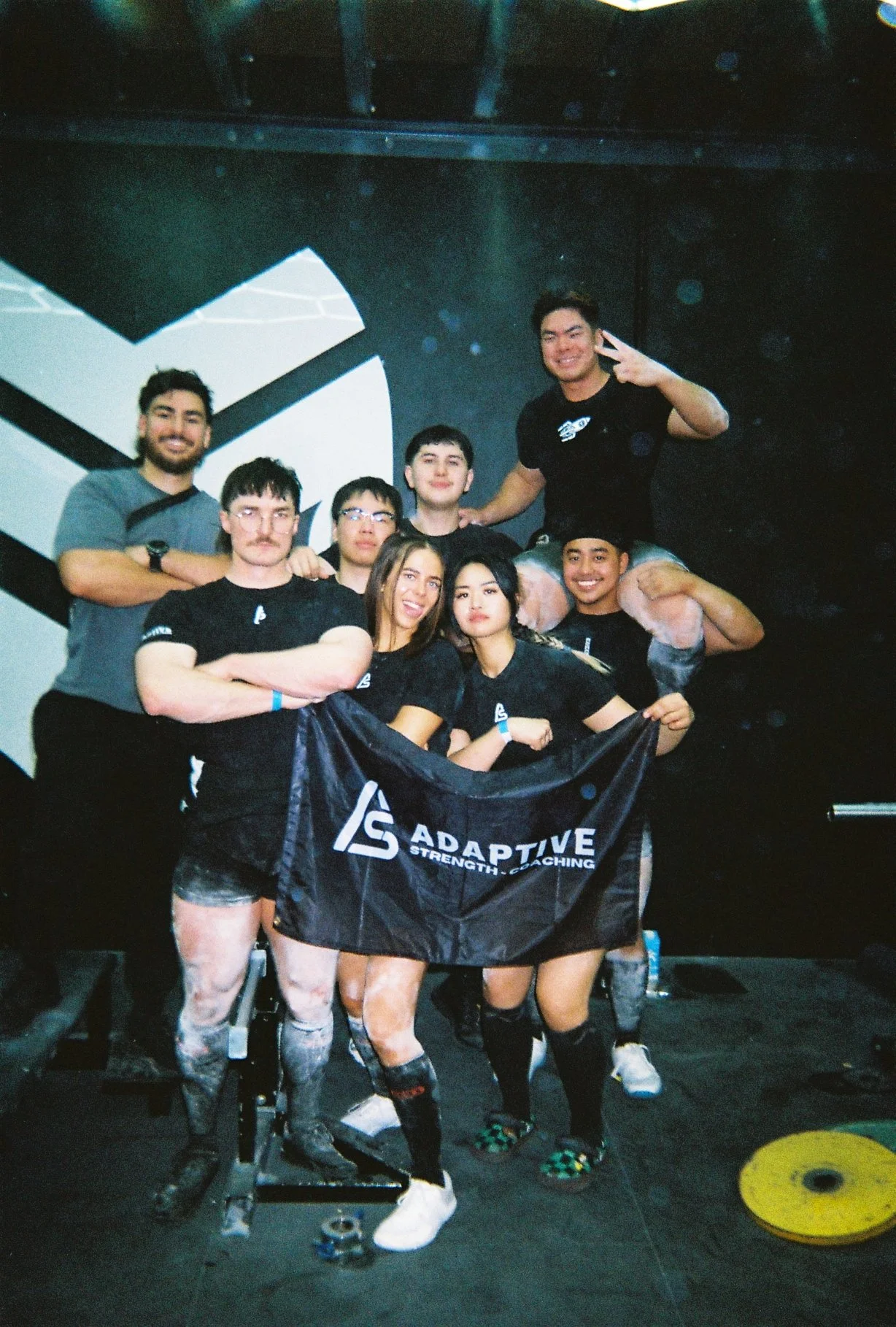Coaching is built on more than just sets and reps. These values guide how we connect with athletes, make decisions, and help them grow, both on the platform and beyond it.
The Adaptive Philosophy
Adaptive Core Values
-
Change the plan based on context, not ego. Training isn’t rigid, it evolves with the athlete’s needs, stress, and performance. Adaptability ensures progress without burnout and keeps the process aligned with reality, not perfection.
-
Reflect on my role and strive to improve. Coaching is a partnership. I hold myself accountable to evolve, communicate better, and keep earning the trust athletes give me.
-
Choose what’s right over what’s easy. Whether it’s in programming decisions, athlete care, or communication, integrity keeps the process grounded in respect and authenticity.
-
Stay calm under pressure and focused on what I can control. Stoicism is about staying grounded and following a plan, rather than letting emotions dictate our actions. It reminds both the coach and the athlete that discipline and reason lead to progress, not impulse or frustration.
-
Listen deeply and adjust with care. Every athlete brings a story, challenges, and emotions into training. Empathy helps me coach the person, not just the program.
-
Ensure life and training coexist, not compete. Performance matters, but not at the cost of health, relationships, or identity. True strength comes when life supports training, and training supports life.
-
Support athletes emotionally without dismissing their experiences. Struggles, frustrations, and doubts are part of the process — my role is to create space for them while keeping focus on growth.
-
Empower athletes to understand, not just follow. When athletes know the “why” behind their training, they build autonomy, confidence, and long-term success, inside and outside the gym.

